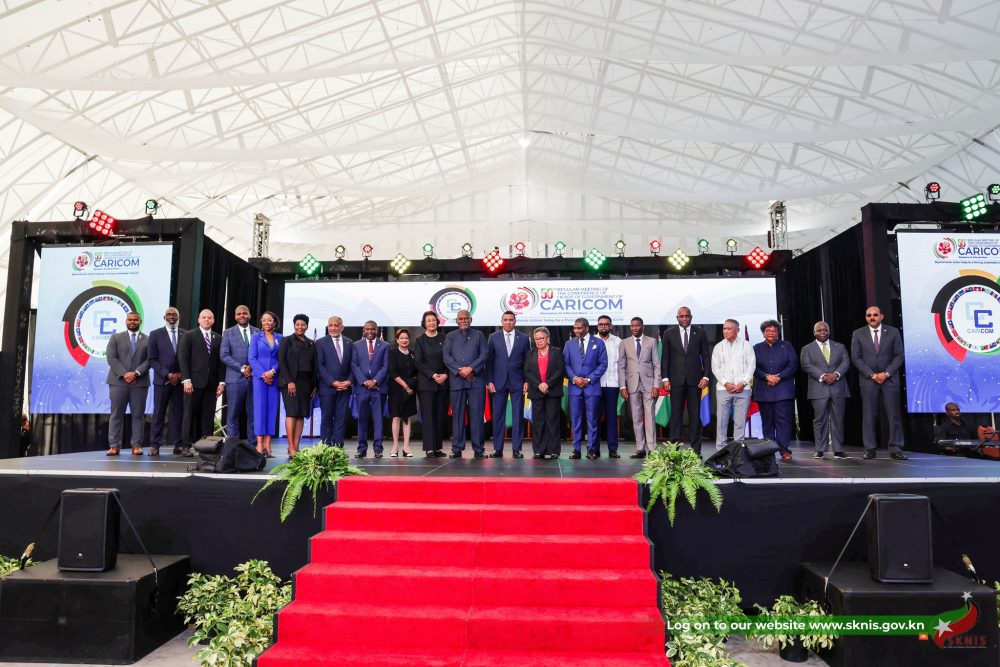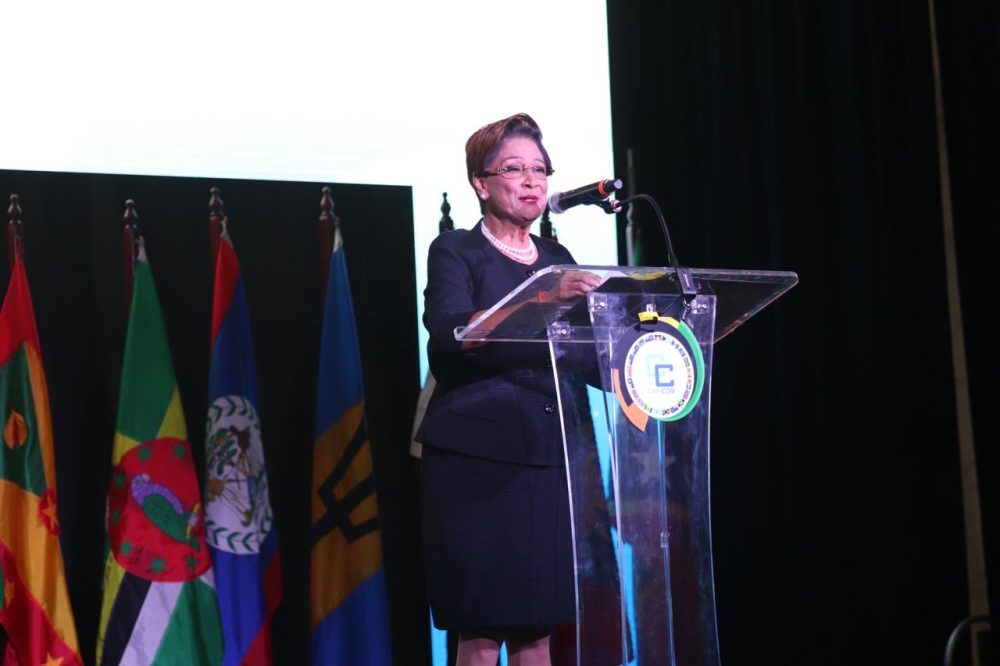Governor of the Eastern Caribbean Central Bank Timothy N. J. Antoine says, “urgent action is needed to address financial literacy and inclusion in the ECCU.”
The governor was speaking at last week’s presentation of the findings of the first Financial Literacy and Financial Inclusion Survey (FLFI) conducted in 2022 across member states of the Eastern Caribbean Currency Union (ECCU).
The ECCB commissioned the survey to ascertain the extent to which the public are aware of and have access to financial products and services that meet their needs. The firm, Data Point Solutions, was contracted to conduct the survey in the ECCU.
The objective of this initial survey was to have a baseline analysis relevant to the ECCU that is internationally comparable and: (a) capture information about financial behaviour, attitudes, and knowledge of individuals; (b) ascertain financial awareness and access to financial services and products and (c) help define realistic targets that can be monitored to measure progress over time.
The survey reveals that 1 in 2 people in the ECCU are not financially resilient.
Montserrat had some of the highest scores in several elements of the survey, however this did not improve the overall financial resilience of its people.
According to the survey, 20.2% of Montserratians can cover their living expenses for one month, 18.6% can do so for one to less than three months, 15.6% can manage up to three to six months, and 23.8% can handle six months or more. 21.6% of respondents did not answer this question. Antigua & Barbuda scored the highest in this question with 35.5% able to cover their cost-of-living expenses for six months or more. Dominica scored lowest with 16.9%.
While financial literacy was low across all ECCU Countries, Montserrat had the third highest overall score with 12.6. The overall financial literacy score was 12.2 out of a maximum of 20 or 61%. In the ECCU, the financial literacy score ranged from 11.7 to 13.1. The highest score was achieved by Anguilla and the lowest score was achieved by Saint Vincent and the Grenadines. These scores suggest room for improvement across all territories in financial knowledge, behaviour and attitude, the report noted.
Financial product awareness was relatively high across all countries; however, the use of these products was relatively low. The results show that 88.3 per cent of respondents were aware of at least 5 of 18 financial products, while 54.5 per cent chose at least one of these products in the two years preceding the survey. Montserrat scored highest in awareness of financial products available in the ECCU with 96.6%. However, only 47.7% of respondents used at least one of the products in the past two years.
The survey revealed that financial literacy levels varied across socio-economic and demographic groups, with higher income earners recording the highest levels of financial literacy and those without internet access recording the lowest levels of financial literacy. Of note, is very little to no gender gap in financial literacy across the countries.
The ECCB Governor said “In a region which boasts high levels of adult literacy (high 90s), financial literacy is lamentably low and lugubrious (dismal). How do we explain the following? Persons falling for scams offering prizes for competitions in which they were never registered. Persons engaging in hire purchases ignorant or indifferent to effective interest rates with some as high as 35%. The proliferation of payday loans which essentially means attempting to ride up on a down escalator – a veritable debt trap. Highly credentialed persons who are clueless about managing their personal finances. Only 1 in 25 persons (4 percent) in the ECCU are invested in the regional and international capital markets but several persons are now pursuing investments in high risk cryptos. Persons spending their limited income on wants while begging family, friends and government for their basic needs.”
Notwithstanding the low levels of literacy in the sub region, 9 in 10 respondents can be described as “financially aware” – evidenced by their knowledge of at least 5 of 18 financial products listed. In terms of financial holdings, the survey revealed that 9 in 10 residents across the ECCU held an account with a financial institution, of which the most preferred were savings, investments, and retirement products.
Worthy of note is low usage of the modern payment system across the ECCU. The survey revealed that 76.0 per cent of respondents made regular and recurring payments in the 12 months preceding the survey, yet 41.6 per cent made at least one electronic payment in the same time period. Moreover, some residents of the ECCU have also turned to family or friends for assistance to save or borrow – services that are available from financial institutions.
This report highlights a summary of the key findings of the ECCB’s first FLFI survey of 7,037 individuals 18 years and older in the ECCU. The survey captured key FLFI characteristics across various subgroups, including financial awareness, knowledge, skills, attitudes, and behaviors necessary to make sound financial decisions.
The average financial knowledge score obtained across all individuals in the ECCU was 4.4 out of 7.0 or 62.9 per cent. Financial knowledge scores ranged from 4.1 in Saint Lucia and Saint Vincent and the Grenadines to 4.7 in Montserrat.
Only 9 per cent of adults in the ECCU passed the minimum target score on all financial literacy components.
Montserrat had the highest proportion of people (24.4 %) passing the minimum target financial attitude score.
Montserrat registered the widest gap in financial literacy scores between residents with internet access (13.0 out of 20) and those without internet access (8.8 out of 20).
Financial awareness is not an issue in the ECCU, as over 8 out of 10 (88.3 %) respondents were aware of at least 5 of the 18 products listed. On the other hand, just over 5 in 10 people indicated they made at least one product choice in the two years preceding the survey. The top 5 products that ECCU residents were aware of are savings account, insurance, mortgage, credit card and car loans. Of note, was residents’ awareness of ECCB’s digital currency. On average, only 1 out of 4 individuals were aware of ECCB’s DCash.
In the ECCU, approximately 9 in 10 persons (86.0 %) hold an account with a financial institution. The top 5 financial products held were savings account, insurance, pension or retirement product, stocks and/or shares, and prepaid debit card/payment cards that are not linked to a bank account. Most ECCU individuals (83.2 %) hold savings, investment, and retirement products.
Over 95.0 per cent of respondents in Montserrat utilized savings accounts. In Anguilla, 70.1 per cent of respondents utilized insurance products. Retirement products and prepaid debit cards (not directly linked to a bank account), were most prevalent in Saint Kitts and Nevis. Meanwhile, 48.5 per cent of residents in Saint Vincent and the Grenadines reported holdings of stocks and/or shares.
Over half of the individuals in the ECCU indicated that they were not able to meet their living costs in the past 12 months. Further, over 2 in 5 individuals (43.9 %) indicated that they will not be able to face a major expense today without borrowing from a financial institution or asking family or friends to help. However, to make ends meet, nearly half of the individuals surveyed cut back on spending, did without, or delayed a planned expense. Individuals also drew down on their savings or transferred funds from savings to chequing account, worked overtime, asked for help, or sold something they owned.
Governor Antoine said “As a region vulnerable to external shocks, we must be engaged in a lifelong pursuit of building resilience including financial resilience. This is imperative for member countries, companies, and individuals. Armed with the results of this Survey and seized with a sense of urgency, I issue a clarion call for a coalition of partners and champions (institutionally and individually) to join the ECCB as we craft and implement a strategy to scale up financial literacy and inclusion in the ECCU.”
Download the ECCU Financial Literacy and Financial Inclusion Survey Report
Discover more from Discover Montserrat
Subscribe to get the latest posts sent to your email.



